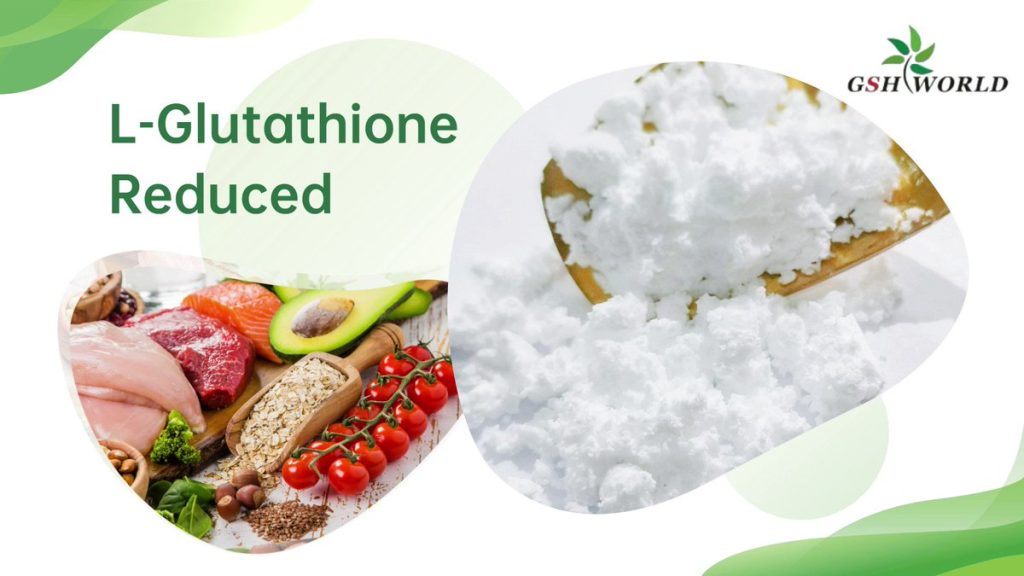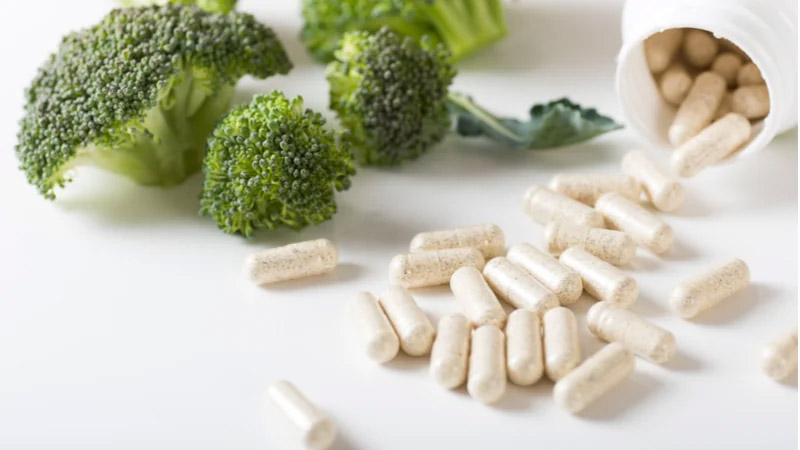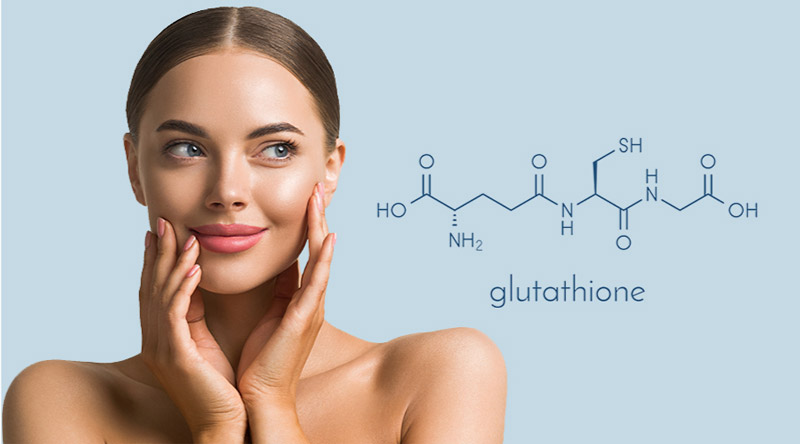Glutathione is a tripeptide containing γ-peptide bonds and sulfhydryl groups. It is composed of three amino acids: glutamic acid, cysteine and glycine. referred to as GSH and is widely found in animals, plants and microorganisms. It is one of the most important non-protein thiol compounds in organisms.
Under physiological conditions, glutathione mainly exists in two forms: reduced glutathione (GSH) and oxidized glutathione (GSSG). More than 95% of GSH in the human body exists in reduced form.
The total body content of young adults is about 15 grams, and 1.5-2 grams are synthesized every day, participating in more than 30 major biochemical metabolic functions in the body.
The cells of the human body are carrying out various physiological reactions every day, and the smooth progress of these reactions cannot be separated from the assistance or promotion of certain factors. Glutathione is a very important one.
It has many active groups and can participate in and affect a variety of reactions. From the perspective of external manifestations, GSH has a variety of effects.
Research has found that it currently recognized as free radical scavenging, antioxidant, liver protection, whitening, freckle removal, delaying skin aging and pigmentation, and beneficial to the recovery of certain diseases.

The Benefits of Glutathione
1. Antioxidant
Glutathione is a powerful antioxidant that exists in every cell of the body and can remove excess free radicals, such as hydrogen peroxide, peroxide free radicals, etc.
It can protect the sulfhydryl groups in proteins from oxidation, repair the sulfhydryl groups in damaged proteins, restore active functions of proteins, and make skin cells healthier.
2. Whitening and lightening
The precipitation of melanin is an important cause of skin spots. Glutathione can inhibit the production of melanin, decompose existing melanin, and prevent the precipitation of melanin that being formed, thereby preventing the occurrence of spots and gradually clearing the original spots.
3. Enhance skin elasticity
Continuous supplementation of glutathione can provide a good growth environment for new muscle cells. Therefore, the proportion of new muscle cells in the skin’s epidermal cells increases, which has a good comprehensive hydrating and moisturizing effect, making the muscle cells healthier.
4. Anti-Aging
Glutathione can delay cell aging and accelerate cell regeneration, thereby delaying the aging process of the entire human body. Supplementing GSH can increase or promote the secretion of human growth hormone (interleukin), which can regulate and slow down the shortening of telomeres, extend cell life, and effectively resist aging.
5. Detoxify
Glutathione has a certain detoxifying effect on carbon monoxide, heavy metals, organic solvents, epoxy compounds and other carcinogens poisoning, and can combined with them and excreted out of the body.
It has a protective effect on leukopenia caused by radiation, radioactive drugs or anti-tumor drugs. It also plays a detoxifying effect on various carcinogens by helping the liver metabolize, such as aflatoxin, etc.
The Whitening Principle of Glutathione
When ultraviolet rays irradiate the skin, a large number of free radicals will generated, activating the production of melanin, and GSH can interfere with the synthesis of melanin.
- Directly inhibit tyrosinase activity
- Scavenge free radicals and inhibit the activation of tyrosinase
- Make the melanin synthesis pathway tend to be pheomelanin (rather than the melanin that darkens the skin). Glutathione can fundamentally inhibit or reduce melanin, prevent melanin precipitation, inhibit the formation of spots and freckles, thereby achieving the effect of whitening skin and fading spots.

What Foods Can Increase Glutathione Levels?
1. Foods rich in sulfur
Like garlic, onions, cruciferous vegetables (kale, cauliflower, cabbage, etc.)
2. Supplement active whey protein
Choosing non-pasteurized and non-industrially produced milk can provide rich amino acid raw materials for the synthesis of cysteine and glutathione.
3. Directly supplement acetylcysteine
Cysteine is one of the important components of glutathione. The level of glutathione in the body is closely related to cysteine.
4. Supplement basic nutrients
B vitamins, vitamin C, and vitamin E can all promote the recycling of glutathione.
Glutathione acts as an antioxidant, protecting your health by helping to scavenge free radicals in the body. Glutathione widely found in food and also sold in the form of dietary supplements. If you need to add dietary supplements, talk to your health care provider.



